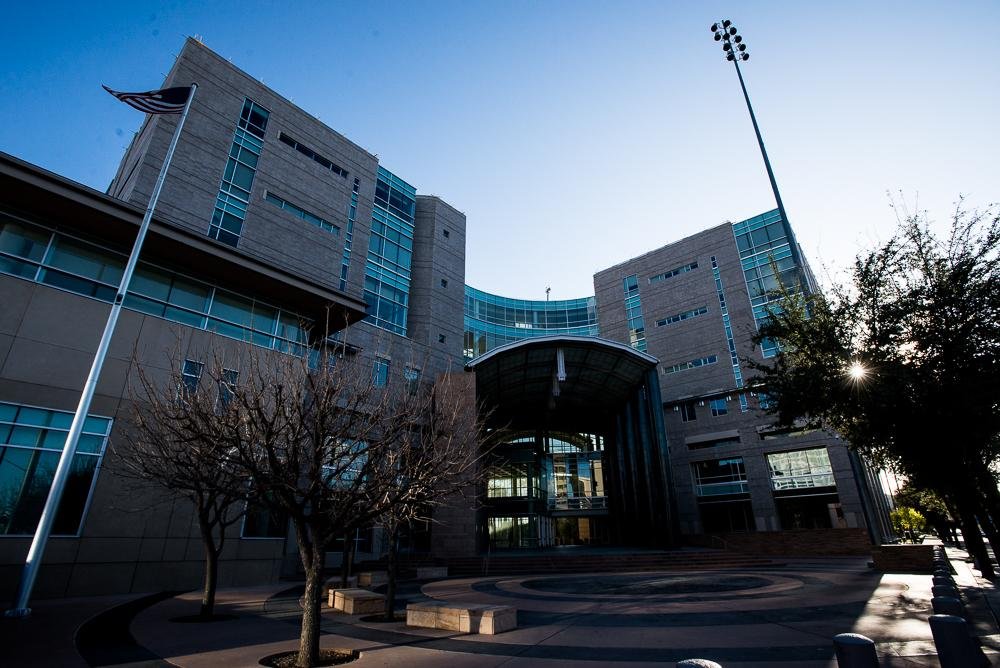border
Tucson Lawyers Launch Third Lawsuit Against Trump Officials to Safeguard International Students

A new legal battle has emerged in Arizona as a group of university students takes action against the federal government over the sudden termination of their student visas. This unsettling situation has left the students facing potential arrest and deportation.
Last week, attorney Matthew Green, alongside Jesse Evans-Schroeder, filed lawsuits on behalf of two students claiming that officials from the Trump administration and U.S. Immigration and Customs Enforcement (ICE) ended their visas in an “abrupt and unlawful” manner. On Tuesday, they expanded their efforts by filing a third lawsuit for an additional eleven students who reported similar visa cancellations within the last two weeks.
According to the complaints, between March 25 and April 10, 2025, federal authorities marked these students’ SEVIS records as “Otherwise failing to maintain status – Individual identified in criminal records check and/or has had their visa revoked.” This sudden shift has alarmed campuses nationally, particularly in Arizona.
Green elaborated, “The racially targeted SEVIS terminations have occurred amid federal pressures on universities and threats of losing essential federal funding.” The chaotic nature of these actions has left educational institutions scrambling to provide accurate information to fearful students.
The plaintiffs include a range of post-doctoral, graduate, and undergraduate students from Maricopa and Pima counties. They express deep concern over the prospect of being forced out of the United States, jeopardizing their educational investments. Reports indicate that at least 1,300 students from over 210 higher education institutions have experienced changes to their legal immigration status, affecting around 50 students from Arizona State University.
In a contrasting move, the University of Arizona has withheld information about the number of students who may have lost their visas this spring, citing privacy concerns. However, federal law allows for the release of directory information, such as student enrollment status.
ICE’s scrutiny of criminal backgrounds linked to student visas has raised significant concerns. Documented evidence shows that any student with a misdemeanor or felony charge—even if dismissed—faces immediate visa cancellation. Attorneys are actively filing multiple lawsuits to safeguard these students, achieving temporary restraining orders in cases across several states, including Michigan and Minnesota.
The Trump administration remains committed to the expulsion of individuals from the U.S., leading to allegations of an aggressive and potentially illegal campaign against those without due process. ICE manages the SEVIS records to ensure students retain lawful status to study and work within the country.
In recent filings, Green noted the overarching impact of the actions against his clients, describing them as part of a troubling trend against international students. He remarked, “ICE’s unlawful termination of SEVIS records appears aimed at coercing students into abandoning their studies and self-deporting despite not actually violating their status.”
A U.S. District Judge has issued a temporary restraining order to maintain the students’ status until a further hearing can be held on April 29. This judicial action aims to preserve the current legal standing of affected individuals amid ongoing uncertainty.
During a recent court session, Judge Jennifer G. Zipps expressed her concerns regarding anonymity for the plaintiffs. She affirmed the importance of keeping student identities confidential to prevent potential retaliation. The court will rule on this matter in the coming days as the ramifications of these visa terminations become clearer.
The unfolding case has sparked critical discussion about U.S. immigration practices, especially regarding the termination of SEVIS records without clear regulatory justification. Advocates argue that such actions undermine the principle of due process.
As legal proceedings continue, the fate of these students hangs in the balance, balancing the principles of national security with the rights of individuals pursuing education in the United States.


















